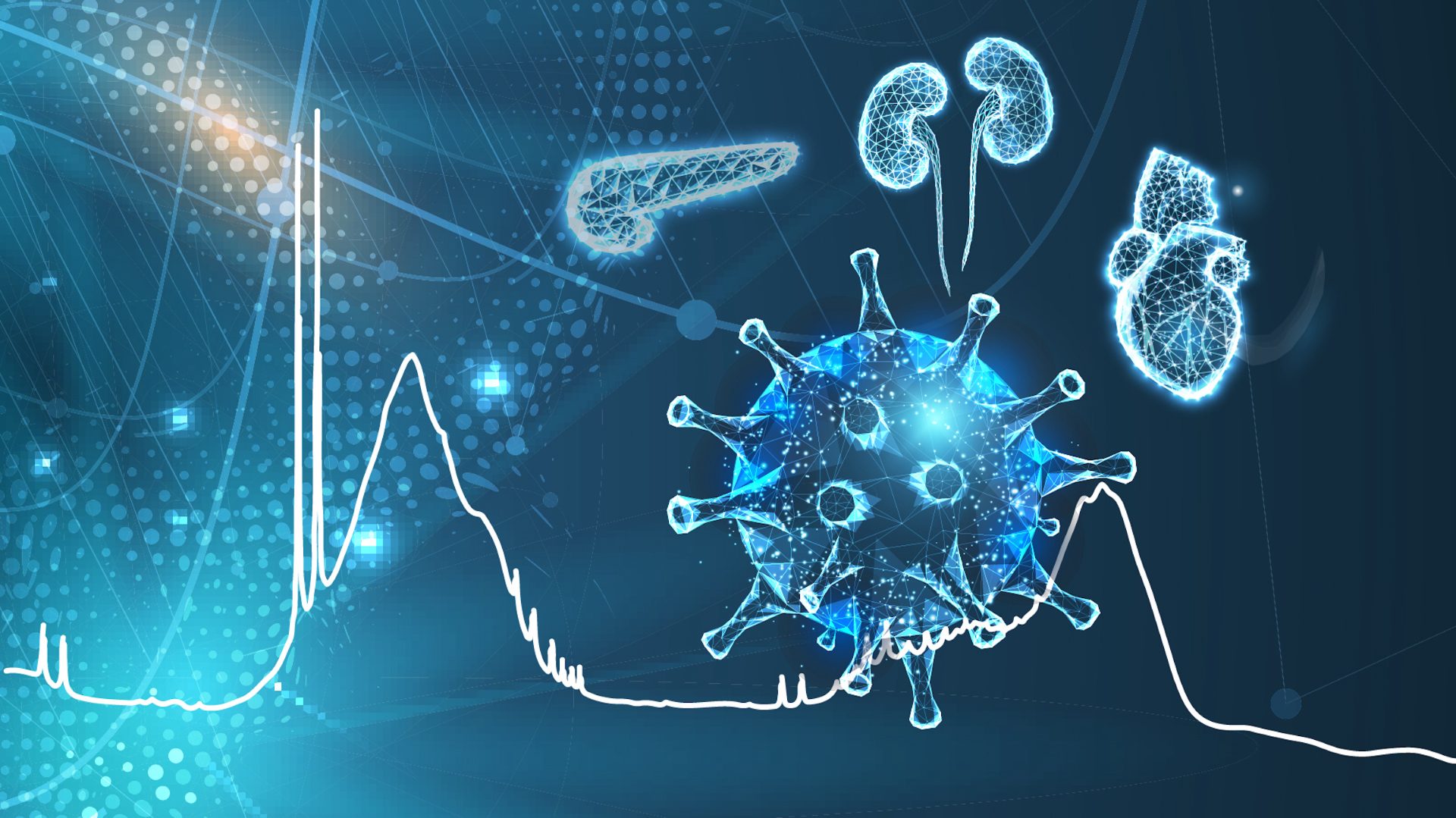

NMR* based Lipoprotein Phenotyping reveals severity and recovery subgroups in populations infected by SARS-CoV-2
Webinar Overview
Members of the NMR International COVID-19 Research Network have published grounding breaking research showing how NMR spectroscopy has played a key role in our growing understanding of the long-term systemic effects of SARS-CoV-2 infection, using metabolic phenotyping. Listen to Prof. Julien Wist as he is discussing about how NMR can contribute.
ON DEMAND WEBINAR
Speaker Abstract
Abstract written by Professor Julien Wist (Professor of Computational Spectroscopy at the ANPC)
The biological processes behind the response of patients to infection by SARS-CoV-2 are not fully understood. Applying a broad phenotypic approach on a longitudinal cohort enabled the identification of key markers associated with 1) the onset of the acute phase (phenoconversion) and posterior normalisation process (phenoreversion), 2) the risk of death and 3) the risk of developing post-acute covid syndrome – PACS or long-COVID. The phenotypic profiles included clinical, immune and inflammation parameters along with glycoproteins, lipoproteins, and other small molecular weight metabolites. The cohort was carefully stratified according to the severity of the respiratory symptoms.
Our results indicate that regardless of respiratory symptoms and their severity a disturbance to the metabolic signature could be observed. Moreover, 3 sub-phenotypes (mildly affected; severely affected but recovering; not recovering) could be identified at the onset of the disease that relate with both the respiratory severity and the prospect of recovery. Other metabolic markers which were perturbed could be linked to brain metabolism and associated to patients experiencing neurological symptoms 6 months post infection. Similarly, markers for cardiovascular risks were elevated in acute patients, a warning of future complications that certainly explains the excess cardiovascular risk burden observed in population infected by SARS-CoV-2.
Interestingly, a high degree of covariance was found between standard clinical parameters such as CRP and parameters from the distinct panels, meaning that surrogate markers could be used. Indeed, lipoprotein and glycoprotein parameters are accurate predictors of the disease outcome and of cardiovascular risk. These parameters are readily obtained from NMR experiments acquired in <10 minutes, with minimal and non-destructive sample preparation. With an ongoing pandemic and a large portion of the world population already affected, it is timely to expand our testing capability to monitoring the recovery (phenoreversion).
Who Should Attend?
NMR* scientists
Researchers studying COVID 19 disease
Clinical trial investigators
Clinicians.
* Bruker NMR Instruments are for Research Use Only. Not for Use in Clinical Diagnostic Procedures
Speakers
Julien Wist
Professor of Computational Spectroscopy | Deputy Director of the Center for Computational & Systems Medicine
Prof. Julien Wist is currently the Deputy Director of the Centre for Computational and Systems Medicine at Murdoch University and head of operations and lead of the bio-/ chem-informatics team at the Australian National Phenome Centre consisting of software engineers, biostatisticians, chemometricians and data processing experts to develop analytical pipelines for metabolic phenotyping. Wist is involved in international initiative for the development of open-source data analysis and visualisation platforms such as nmrdb.org, nmrium.org and cheminfo.org.
His research focuses on the integration of high-fidelity molecular phenotypes to create translatable methods for the clinical environment. He strives to establish a comprehensive phenotypic databank of the world population by integrating cellular, immunological, and molecular data. Prof. Wist's research on SARS-CoV-2 infection revealed crucial markers for disease progression, including the acute phase, risk of death, and post-acute COVID 19 syndrome. More recently, Wist and his team detected and elucidated the structure of 10 new molecules for the first time in human urine and elucidated 10 of them, revealing the existence of an extended RSAD2 dependant natural antiviral pathway extending involving the Viperin enzyme to convert CTP into ddhCTP and analogs. These significant findings have led to the filing of 2 patents in collaboration with industry leaders and have been published in renowned international journals.